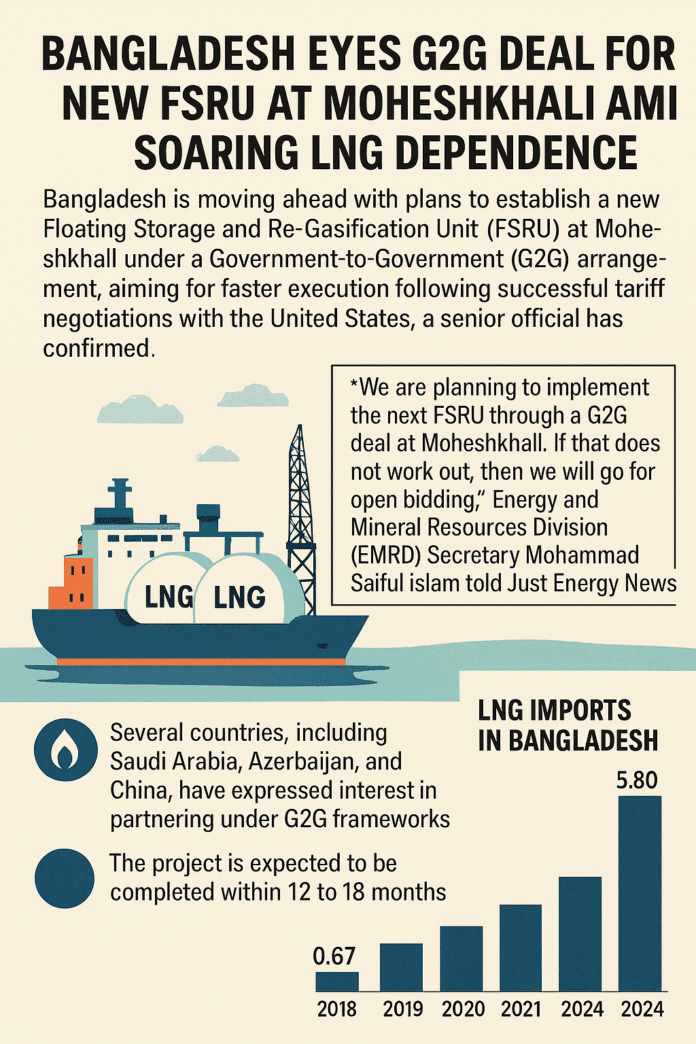Bangladesh is moving ahead with plans to establish a new Floating Storage and Re-Gasification Unit (FSRU) with a capacity of 600mmBtu at Moheshkhali under a Government-to-Government (G2G) arrangement, aiming for faster execution following successful tariff negotiations with the United States, a senior official has confirmed.
“We are planning to implement the next FSRU through a G2G deal at Moheshkhali. If that does not work out, then we will go for open bidding,” Energy and Mineral Resources Division (EMRD) Secretary Mohammad Saiful Islam told Just Energy News.
According to him, several countries, including ARAMCO of Saudi Arabia, SOCAR of Azerbaijan, OQT of Oman and CMC of China, have expressed interest in partnering under G2G frameworks.
The government is prepared to move forward, as it already has tariff benchmarks from US firm Excelerate and Summit LNG Terminal Co., he added.
The project is expected to be completed within 12 to 18 months.
Saiful Islam noted that the recent tariff negotiations with the United States have pushed natural gas demand up by more than 20%, based on preliminary estimates. “We are working to determine the concrete demand for natural gas,” he said.
He acknowledged that import payments for LNG have already surged by around $400 million and could rise further next year as additional volumes are brought in.
To meet rising demand, the government also plans to supply Bhola gas to the mainland through LNG carriers. “We have already shortlisted firms to handle the task to meet the growing demand,” the secretary said.
At least nine local and international companies have expressed interest in supplying 30 million cubic feet per day (mmcfd) of gas from Bhola by converting it into LNG for industries under Titas Gas Transmission and Distribution Company.
In parallel, Petrobangla is advancing plans to drill 50 new wells to boost domestic production capacity.
Since entering the global liquefied natural gas (LNG) market in 2018, Bangladesh has spent more than $17.6 billion to import 31.61 million tonnes of LNG, according to data from Rupantarita Prakritik Gas Company Ltd (RPGCL), a Petrobangla subsidiary.
LNG imports, now central to Bangladesh’s energy supply, have grown rapidly, from 11 cargoes in 2018 to 86 in 2024. Between January and July 15 this year alone, the country imported 56 cargoes, with the total expected to reach at least 108 by year-end. In 2026, imports are projected to climb further to 124-126 cargoes.
Import volumes have increased from 0.67 million tonnes in 2018 to 5.80 million tonnes in 2024. The corresponding import bill has also ballooned, with $3.53 billion spent in 2022 and $3.54 billion in 2024.
The mounting fiscal burden stems from shrinking domestic production, which has fallen from 2,694 mmcfd in FY2017-18 to around 1,800 mmcfd in recent months. This decline underscores Bangladesh’s growing dependence on costly imports amid global price volatility and rising domestic demand across industries, households, and the power sector.

